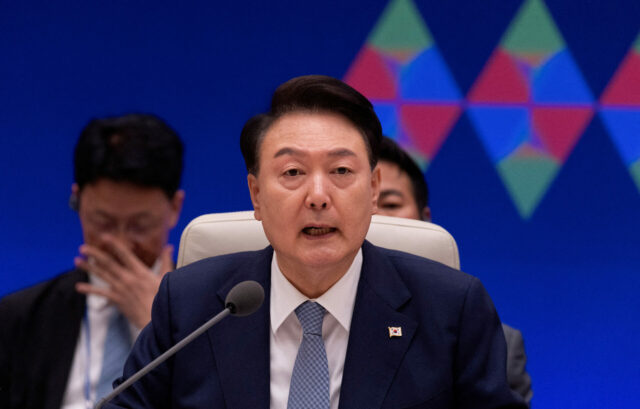The Philippines has received Vietnam’s acknowledgment of its recent United Nations filing, which aims to secure rights to an extended continental shelf in the disputed South China Sea. In response, the Philippines foreign ministry has expressed its readiness to engage in constructive dialogue with Hanoi to address any potential issues arising from this development.
Philippines submits claim to U.N.
Last month, the Philippines took a bold step by submitting a claim to the U.N., seeking recognition of its entitlements beyond the standard 200 nautical-mile Exclusive Economic Zone (EEZ) in the contested waters. This move is grounded in the UN International Seas Law Convention, which permits coastal states to establish a continental shelf extending up to 350 nautical miles from their territory.
Following this initiative, Vietnam has signaled its willingness to engage in discussions with Manila to find mutually beneficial solutions to South China Sea issues.
China opposes the Philippines’ claim
China’s opposition to the Philippines’ submission has however complicated the situation. Beijing argues that this move infringes upon its sovereign rights and jurisdiction, as China claims almost the entire South China Sea – a crucial conduit for over $3 trillion in annual ship commerce.
Moreover, the dispute extends beyond these three nations, with Brunei and Malaysia also asserting claims in the region. this complex web of competing interests has long been a source of tension in southeast Asia.
It’s worth noting that in 2016, the Permanent Court of Arbitration in the Hague ruled that China’s expansive claims had no legal basis. Nevertheless, Beijing has consistently rejected this decision, maintaining its stance on territorial rights in the area.
Manila opts for diplomacy
As the Philippines advances its U.N. filing, the country appears to be adopting a diplomatic approach. By welcoming Vietnam’s recognition and expressing openness to talks, Manila is potentially paving the way for more collaborative efforts in managing South China Sea disputes.
While significant challenges remain, this recent development suggests a possible shift towards increased dialogue and cooperation among some claimant states in the region. The coming months may prove crucial in determining whether this approach can lead to more stable relations in these contested waters, potentially reshaping the geopolitical landscape of the South China Sea.
With inputs from Reuters
Traveller, bibliophile and wordsmith with a yen for international relations. A journalist and budding author of short fiction, life is a daily struggle to uncover the latest breaking story while attempting to be Hemingway in the self-same time. Focussed especially on Europe and West Asia, discussing Brexit, the Iran crisis and all matters related is a passion that endures to this day. Believes firmly that life without the written word is a life best not lived. That’s me, Ashwin Ahmad.





